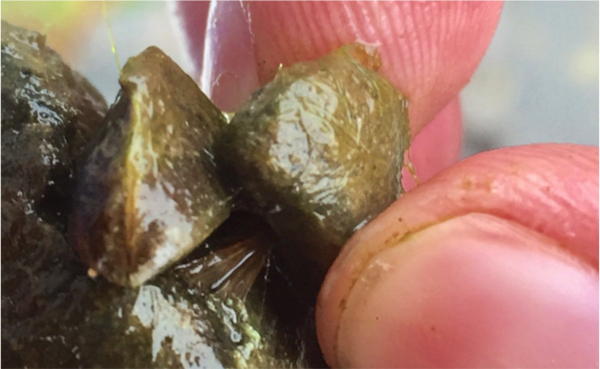Assessing Materials’ Short-term Effectiveness on Controlling Zebra Mussel (Dreissena polymorpha) Attachment
(1) King Philip Regional High School, Wrentham, Massachusetts
https://doi.org/10.59720/18-073
Zebra mussels, an aquatic invasive species, cost millions of dollars each year to control due to their extensive attachment on essential industrial structures and detrimental effects on the native ecosystem. Reducing mussel attachment would allow researchers to control what surfaces these mussels attach to, and this reduction would prevent dangerous situations in industrial piping that occur when mussels prevent water flow. The goal of this research was to identify nontoxic materials that were effective in preventing or reducing the strength of zebra mussel attachment. We tested two materials, Sharklet and Netminder, that were designed to prevent biofouling of aquatic organisms, as well as two control materials, PVC pipes and a lake rock. The first experiment determined that Sharklet cannot prevent adult mussel attachment, but there was a statistically significant difference in attachment strength between Sharklet, the uncovered PVC pipe, and the rock. The second experiment determined that Netminder likewise cannot prevent adult mussel attachment and does not have a statistically significant difference in attachment strength with an uncoated PVC pipe. Since the Sharklet demonstrated some ability to deter mussel attachment, the material, along with other micro-engineered surfaces, warrant further study. Netminder likewise requires future study to determine its effect on zebra mussel veligers in a natural environment.
This article has been tagged with: